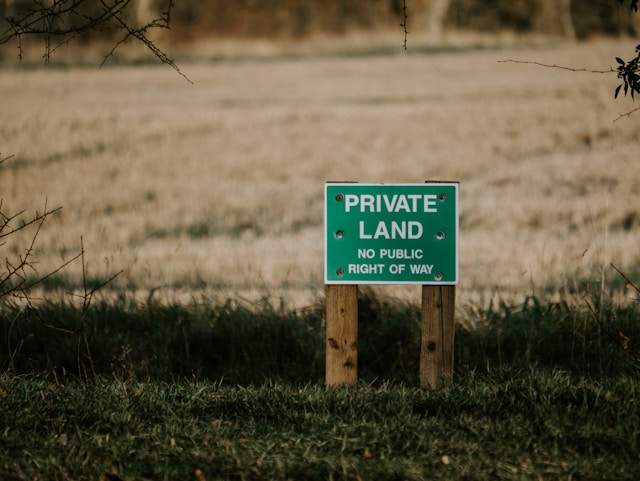Right this way! An A-Z glossary outlining rights of way

Rights of way, demystified. Clear, simple definitions to help you navigate the legal landscape. (No pun intended!)
Bridleway
A public right of way for walking, horse riding, bicycles, mobility scooters or powered wheelchairs.
Byway Open to All Traffic (BOAT)
A public right of way for any kind of transport, including cars, but mostly used by walkers, cyclists, and horse riders.
Creation Order:
An order made by a local authority to create a new footpath, bridleway or restricted byway.
Dedication:
The process of a landowner giving access to the public to use a path or way over their land.
Definitive Map:
A legal record of the public rights of way in a specified area, prepared by the local authority.
Definitive Map Modification Order (DMMO):
An order made by a surveying authority to amend the definitive map and statement.
Definitive Statement:
A description of each public right of way outlined on the definitive map.
Easement:
The rights exercised by one landowner over land owned by another.
Footpath:
A public right of way for walking, running, mobility scooters, or powered wheelchairs.
Land Registry:
A government department responsible for registering the ownership of land and property in England and Wales.
Obstruction:
Any action or object that hinders or prevents the free passage along a public right of way e.g. road or footpath.
Private Right of Way:
The legal right that allows a landowner of a piece of land to use another person’s land as access or passage.
Public Right of Way (PROW):
The legal right to pass across land at all times, even if the land is privately owned. These include footpaths, bridleways and byways.
Restricted Byway:
A public right of way for any transport without a motor.
Title Deeds:
Documents showing ownership of land and property.
At AWB Charlesworth Solicitors we have extensive experience in rights of way. And it can be a complicated subject, borne of hundreds of years of land usage and legal rulings.
If you need legal advice on this or other related issues, contact Christopher Cooper by calling 01535 613680 or email christopher.cooper@awbclaw.co.uk.
Read more:
Adverse possession: It’s more common than you think
Buying property or land? Look at the deeds
Register your property! Reduce property fraud!
11th July 2025


